Housed in distinctly rugged metal bodies, there’s no mistaking the look of Thorpy FX pedals. Their formidable design and tone is the brainchild of Adrian Thorpe, the company’s founder and a pedal designer since the early 2000s.
We had a chat with Adrian to talk about the history of his pedals, his background as an explosives specialist in the British military, and what we can look forward to coming out of his shop next.
zZounds: What was the first pedal you made that became part of your modern lineup today?
Adrian Thorpe: The first pedal we made was the Gunshot. I had it as a bit of a concept for a couple of years before we released it. And it was just my go-to color, I kept going back to that pedal. I’d build them, sell them for parts, then go back and build them again. Essentially, the Gunshot design was sort of nailed down and that was our first launch.
zZ: So it would you say that your ideal overdrive sound is The Gunshot now?
AT: Yeah I’d say so. It’s designed to give you that sort of classic British crunch, and it responds like an amplifier, as if it had cascading gain stages in there. For me, that’s the perfect overdrive sound. So it’s a little bit hotter depending what you’re playing. Personally for my taste, I think they sort of err toward the heavier side of rock, but we cover most genres within our [pedal] range anyway.
zZ: Yeah, looking through your catalog, you’ve definitely got a wide range of gain in there.
AT: I prefer the heavier side of music, but I’m pretty eclectic as well. I spent a little time in Nashville socializing and had a great time there, so I looked at what they were doing as well. What I choose generally today is probably rock and blues, heavy blues, that’s that’s really where I sit. I always liked that sort of thing.
zZ: Yeah, nothing wrong with that.
AT: Yeah, I try not to pigeonhole myself because you can learn things from all sorts of genres.
zZ: And you’ve got your own pedals to cover just about any genre you want to tackle too, so you’ve got your compressor for country stuff…
AT: Yeah, absolutely. The interesting thing is even though I’m really into my own pedals, I still buy pedals. I still try everything, because a proper gear head should know this stuff.
zZ: You don’t have to make pedals to become addicted to them. But I’m sure if you make them for a living, you can’t help but want to buy everything. What are some of your favorites from other manufacturers?
AT: I’m a big fan of Moog — anything by that company, especially the big Moogerfoogers. Big fan of the Kingsley valve pedals — absolutely love those. And contemporary, I absolutely enjoyed some of the Strymon stuff and Spaceman effects as well.
zZ: From your perspective, how has the boutique pedal market changed since you started building?
AT: It’s a lot harder now. It really is a lot harder to compete. I think it was very easy back in the day. Some companies were successful just making very minor tweaks to the standard circuits and they’ve succeeded, to a massive degree with durability and stuff like that, but I don’t think you can get away with doing that these days. It’s such a saturated market that you’ve really got to innovate if you want to stand out. If you don’t stand out, you don’t make sales.
So I’d suggest the saturated market is a positive and a negative. It’s a positive because ultimately the pedal market is buoyant. That’s how all of these companies can survive. And it’s a negative in that you’ve got a lot more competition. But in all honesty, the competition isn’t really pedals; you’re competing for people’s time more than anything else. PlayStation is the first competition. What you need to do is make a product that’s inspiring to keep people into playing guitar rather than going off and doing something else.
zZ: That’s true. Not to mention the decline of rock music and guitar-based music.
AT: It’s funny. You know, I see that a lot. I go to a lot of gigs and the passion that people show for that sort of music is huge. Fender are doing us all a great service because the amount of money that they’re putting into their tuition service [Fender Play] is huge, and helping everyone.
zZ: So would you say Thorpy’s priority now is more about coming up with original designs?
AT: Yeah, I’d say that’s where we are. I’m currently in a phase where I’m creating as much modulation as possible. We’ve just released our first modulation pedal now, and that’s a totally new design from the ground up, but it’s hard to do that stuff. That’s not as simple as making a few capacitor changes or resistor changes to a Tube Screamer.
zZ: So you see modulation and maybe time-based effects as a as a possible way for Thorpy to grow?
AT: Yeah, I think so. I’m working with a guy named Dan Coggins, he was one of the original boutique pedal designers from the company Lovetone back in the day. They used to make these massive pedals that have been used by, you name a studio producer, or name a guitarist from the ’90s. His artist roster was absolutely packed. He stepped away from pedals a long time ago, but he’s a friend of mine and we designed [the Deep Oggin Chorus/Vibrato] together. We’re in the process of releasing some amazing new things, but with one stipulation: they all have to be new. Nothing with the rinse-and-repeat of something else. It has to be inspiring to us or else we won’t release it.
zZ: That’s a great philosophy to have. And so your first collaboration is the Deep Oggin. What would you say sets this apart from other chorus pedals out there?
AT: It’s the power that you’ve got within there. Firstly, it sounds very three-dimensional. It’s voiced to sound old, but with modern functionality. A lot of modulation these days is digital. This is a brand-new design of an analog circuit, but voiced to sound old as well. Now you got this warmth, and this lushness about it which you don’t get from some digital designs, and it just responds like an old Space Echo chorus or a Roland Jazz Chorus or something like that. It just feels the same and yet you can change the volume, you can boost the treble, you can lower the treble, you can even make it sound like a Leslie. So really what we’ve done is packed in as much power into it as possible. The people who tried it at NAMM were blown away, and that’s in a hall. I was quite proud of that fact.
zZ: I think if it sounds good at NAMM, it’ll sound good anywhere. Your most popular pedal from what I’ve looked at, and seeing the buzz online, I think it would be the Fallout Cloud. Would you agree?
AT: Yeah, absolutely. It’s the one that…it was like the difficult second album that just seemed to smash it out of the park. So yeah, definitely I would say the Fallout Cloud.
zZ: What is it about that pedal that has caught on so well?
AT: I think it’s because it’s a fuzz for people who don’t necessarily like fuzz. What I mean by that is it’s again built to have so much power and control over your tone. But even if you struggle with fuzz in general you can get some great sounds out of the Fallout Cloud. You know, it’s not a Goldilocks pedal. If you want it to be more trebly, you’ve got it in there, if you wanted to be really bass heavy, you can do that too. If you want it to be smooth like Pink Floyd it will do that, but you could also be doing sludge, you know? It’s all things for all men or women.
zZ: That’s awesome because there are so many variations out there. I think people kind of get overwhelmed. Knowing which one is going to sound good for me, which one’s going to sound bad or which one’s going to get me buried in the mix. Having a fuzz that has so much control in it, I think that’s why it’s gone on to be such a hit.
AT: Yeah, I mean ultimately, the gain structurally was voiced on a triangle Big Muff, but after that everything else was fair game. I am proud that you can pretty much nail most variants of Muff out of that pedal. If you just tweak it, you know, it’s got so much range within those four controls. You can match it to your amplifier with ease.
zZ: I wanted to talk to you about the design aesthetics of your pedals. When I first saw them, that’s what stood out — like the chrome chassis and then the side panels. Where did that design come from? They’re really cool.
AT: I’m quite a big bloke. I didn’t want to damage them. I’ve fixed so many pedals, and essentially the idea of this was to protect the knobs. The reason the holes are there is to replicate the look of a piece of armor, which is called Super Bainite. And that armor is used to protect military vehicles from RPG attacks. The chrome, I just wanted to make it look cooler and it enabled me to use the laser etch. And again aside from the engineering reasons, you obviously want it to look good. I think we achieved it though, people seem to love it.
zZ: Yeah, they definitely stand out on a board. Can you tell me a bit about your background in the military and how your training, or the military discipline has impacted your business?
AT: I elected to join the military at 16. One of the jobs we did was EOD – Explosive Ordnance Disposal. And yeah, I could spend all that time from 20, 21, ’til 37 playing with explosives as part of my job, which is pretty cool, I won’t lie. It’s a massive rush. I really enjoyed it. I also expanded my professional abilities by getting educated to a high level in engineering. I was also involved with procuring military equipment. So I’ve seen equipment that’s used worldwide in war zones and that had an effect on how I wanted to design my pedals, because you know, if you can design something that can survive soldiers and a war zone then you know musicians probably treat their gear at about the same level.
So it had a massive impact on how I design my products and how I build them. The discipline has given me a lot of direction in my life. So it’s been a real, real positive thing for me. It helps me maintain a good work ethic. Even though I’m only working for myself and I don’t have to answer to anyone. It just means that we really drive forward with what we’re trying to achieve.
zZ: Is it just you at Thorpy or do you have a small team?
AT: It started off with just me and my wife. Now it’s my me, my wife and I have a small team of guys and girls including my mother-in-law and some other guys, friends that have started to work for us as well. It’s a very small team but everyone who works here seems to really like it.
zZ: I love that. A couple of the smaller companies I’ve interviewed through this blog have similar stories where they get family members in the business or neighbors and close friends and it just becomes a really close-knit group of people making awesome musical gear. And you know, some of them might not have any experience from before, but they learn, and I just think that’s really cool.
AT: Every single one of our pedals is polished, wrapped and boxed by my mother-in-law. She does all of that. So every single pedal that we made has been through her hands and meticulously wrapped up and put into the box.
zZ: Your brand has done well, as far as word of mouth and viral marketing. I’ve seen you mentioned on That Pedal Show on YouTube and Andy, he used to be from Pro Guitar Shop, now he’s with Reverb. He’s done demos on you. How did that sort of thing come about for you?
AT: So I’ll start off with Dan from That Pedal Show. I knew Dan from a long time ago because we lived in the same town. He’s a great guitar player, and he’s also a pedal nut, so I ended up building pedals for him specifically to what he wanted. So he wanted a specific Fuzz Face or whatever. So I ended up building stuff for him and then he started That Pedal Show and and I pretty much started Thorpy at the same time. I think we were one of the first pedals to be on that show. That show’s gotten massive now, its doing really really well.
As for Andy, I got speaking to Andy when he worked for Pro Guitar Shop before it was sold. He obviously tested loads of gear and he essentially sent me an email and just said you know, this is an amazing pedal. From that point we have stayed in touch, when he was over here we met up and I also had the pleasure of sharing a few drinks with him at NAMM. He’s such a good guy, a bonafide legend of the gear demo business.
zZ: So, how big has that kind of exposure been?
AT: It’s huge. It absolutely is huge. This is probably the biggest way pedals are marketed these days. People like to watch YouTube, people like to hear the pedals for themselves. And if you can’t get to a shop, it’s huge.
zZ: What’s next for Thorpy? What can we look forward to coming out of your shop soon?
AT: We have some summer releases planned. People have been asking for the boost side of The Dane to be a standalone pedal. I’ve capitulated, I’ve done it, but I’ve also made something special with it. So I don’t like to just rinse and repeat things, like I said. It’s definitely a very special pedal and for our fifth anniversary….yeah, we’ve got something very cool planned.

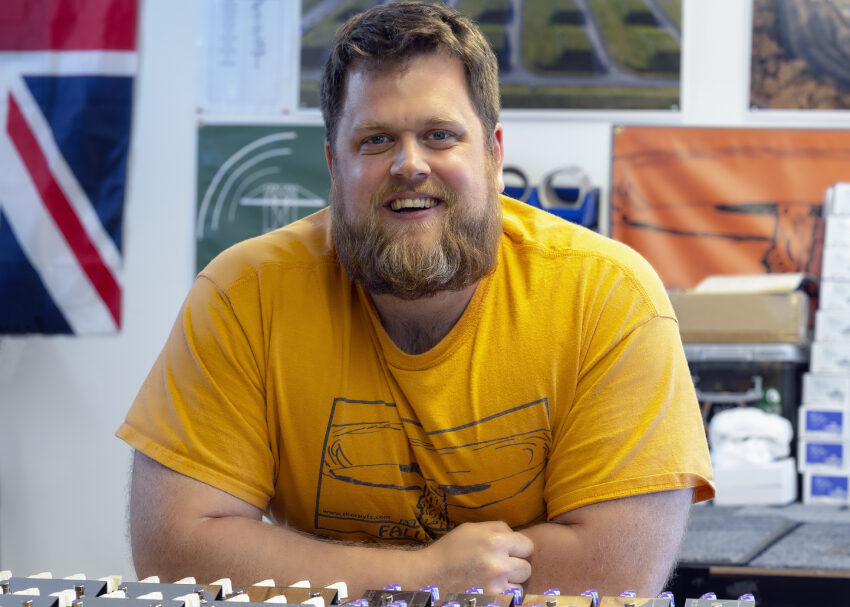
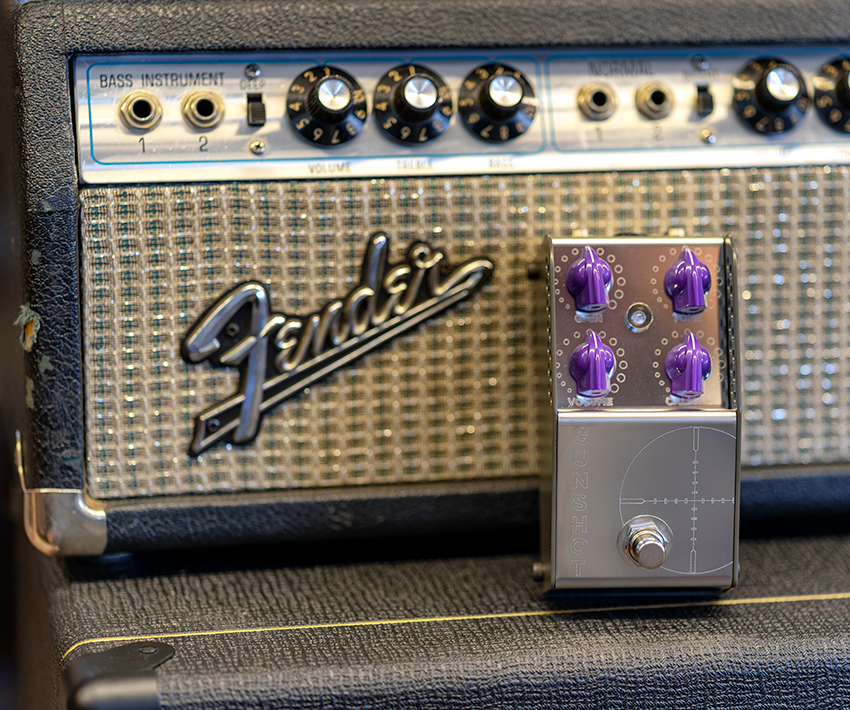
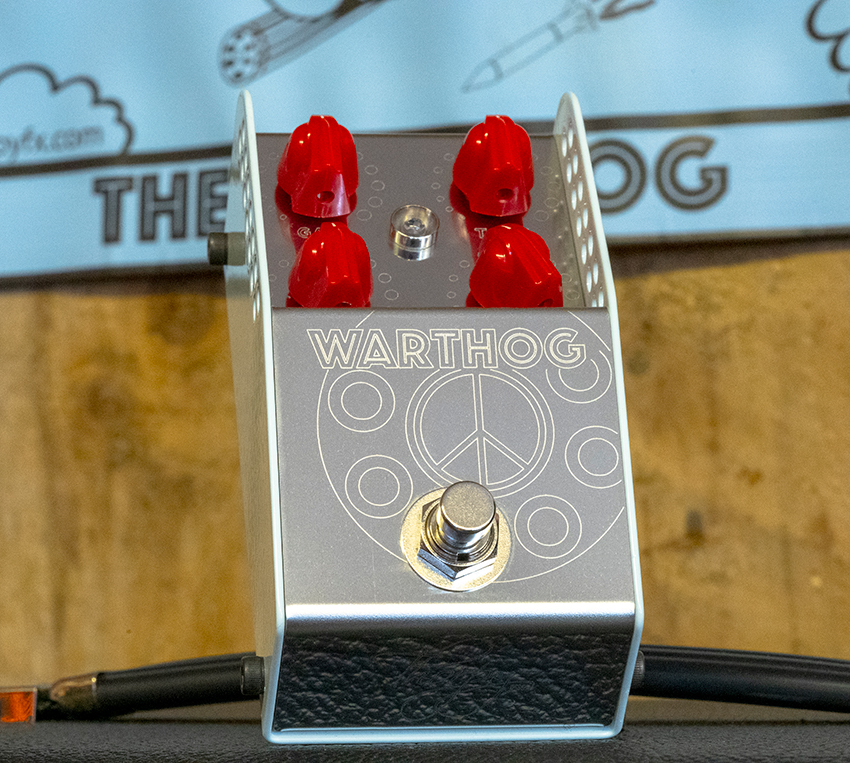
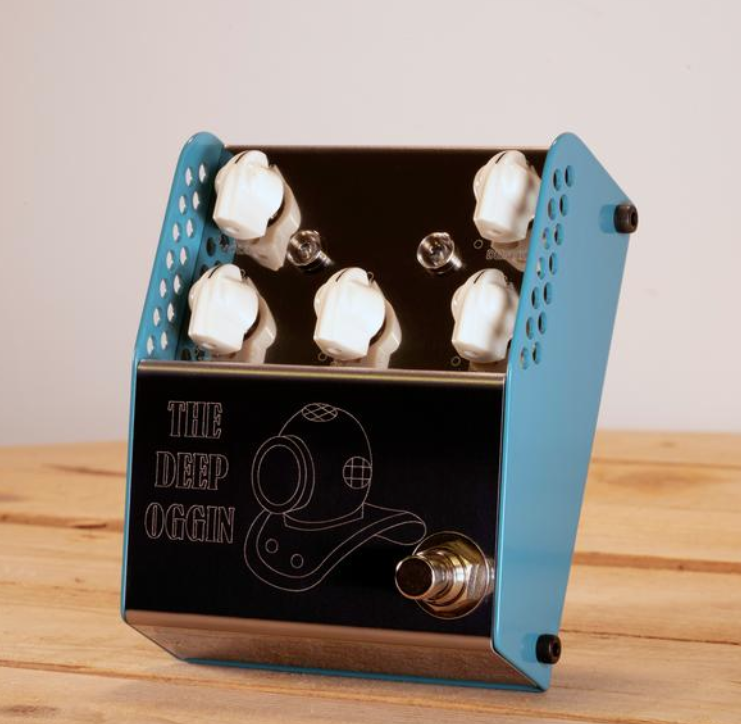
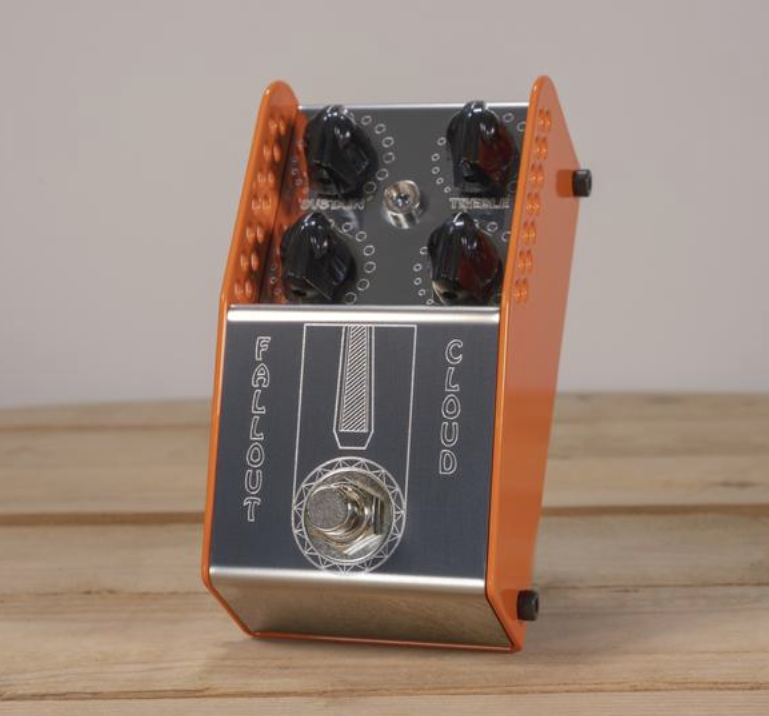
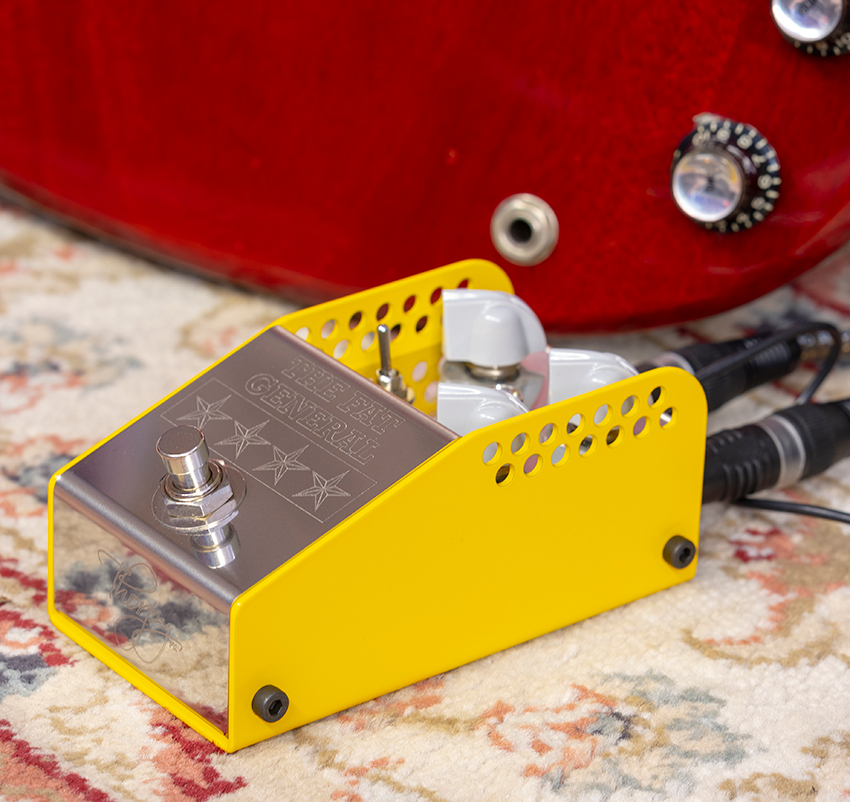
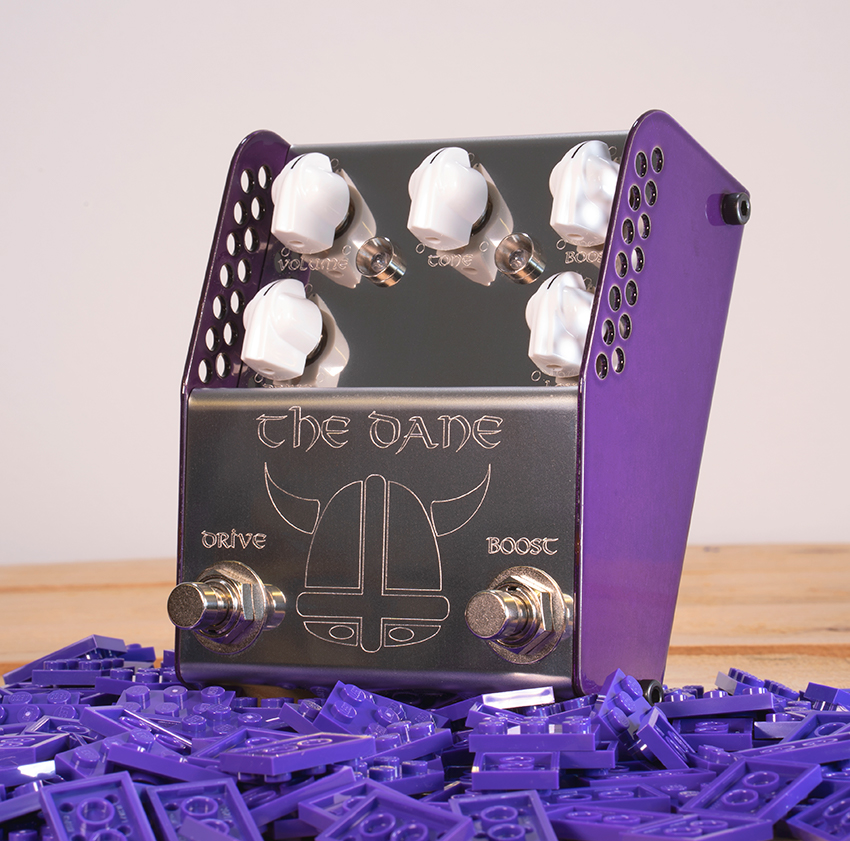


Leave a Reply